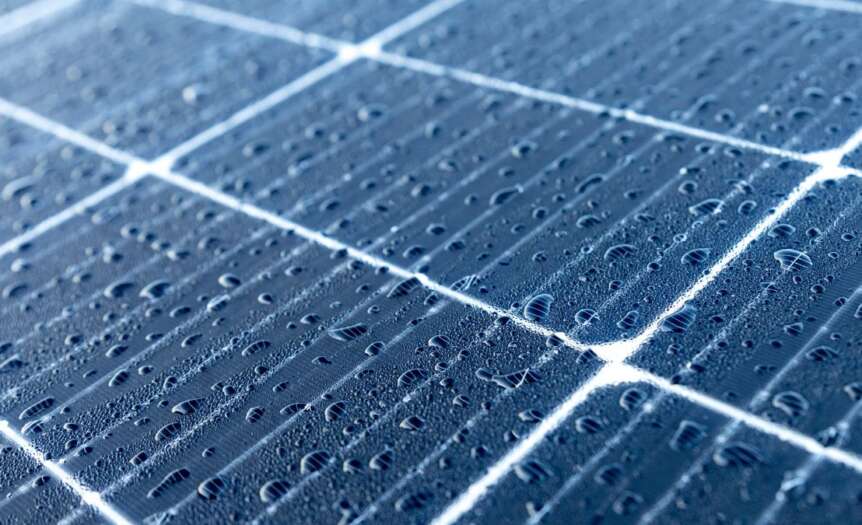Florida is generally known for its fun-in-the-sun weather, but any local to the state knows that the summer months tend to have their fair share of cloudy and rainy days. With solar energy and solar power systems becoming more popular, people are expressing concerns that these rainier days might negatively impact their setup. Read on to discover whether your solar panels work during the rainy season.
Investing in Solar Energy
Before knowing how weather conditions might affect your solar panel system at your home or business, you need to consider if solar energy is right for you. While there are several advantages to installing a proper solar panel system, many homeowners in Florida are snowbirds who primarily come down for the winter months. The potential benefits of a complete setup might not be for you if you frequently move from place to place.
How Clouds Affect Solar Energy
Even on particularly cloudy days, your solar panel system benefits from the sunlight. While it is true your system won’t generate as much energy as it would on a clear day, solar energy is still possible due to a photovoltaic effect system. This effect allows your system to convert photons into energy. Even though sunlight is minimized on cloudy days, those photons still make it through, allowing your solar panels to get roughly 30 to 50 percent of their optimal sunlight needs even on the cloudiest days.
Do Rainy Days Affect My Solar Panels?
It’s comforting to know that solar energy still works on cloudier days, but what about the heavy rains Floridians expect during the hurricane months? Even in the heaviest rain, your panels still use that photovoltaic effect to generate 10 to 20 percent of the energy they receive on clear days. Those wondering if their solar panels work during the rainy season can rest easy knowing they still have access to clean renewable energy with the proper setup. However, when living in an area with heavy clouds and rain, we recommend having a backup battery to store energy that can be used during these events.










 Deering Estate
Deering Estate
 Massage Envy South Miami
Massage Envy South Miami
 Calla Blow Dry
Calla Blow Dry
 My Derma Clinic
My Derma Clinic
 Sushi Maki
Sushi Maki
 Sports Grill
Sports Grill
 The Healthy Kitchen
The Healthy Kitchen
 Golden Rule Seafood
Golden Rule Seafood
 Malanga Cuban Café
Malanga Cuban Café

 Kathleen Ballard
Kathleen Ballard
 Panter, Panter & Sampedro
Panter, Panter & Sampedro
 Vintage Liquors
Vintage Liquors
 The Dog from Ipanema
The Dog from Ipanema
 Rubinstein Family Chiropractic
Rubinstein Family Chiropractic
 Your Pet’s Best
Your Pet’s Best
 Indigo Republic
Indigo Republic




 ATR Luxury Homes
ATR Luxury Homes


 2112 Design Studio
2112 Design Studio
 Hamilton Fox & Company
Hamilton Fox & Company
 Creative Design Services
Creative Design Services
 Best Pest Professionals
Best Pest Professionals
 HD Tree Services
HD Tree Services
 Trinity Air Conditioning Company
Trinity Air Conditioning Company
 Cisca Construction & Development
Cisca Construction & Development
 Mosquito Joe
Mosquito Joe
 Cutler Bay Solar Solutions
Cutler Bay Solar Solutions


 Miami Royal Ballet & Dance
Miami Royal Ballet & Dance
 Christopher Columbus
Christopher Columbus
 Pineview Preschools
Pineview Preschools
 Westminster
Westminster
 Carrollton
Carrollton
 Lil’ Jungle
Lil’ Jungle
 Frost Science Museum
Frost Science Museum
 Palmer Trinity School
Palmer Trinity School
 South Florida Music
South Florida Music
 Pinecrest Orthodontics
Pinecrest Orthodontics
 Dr. Bob Pediatric Dentist
Dr. Bob Pediatric Dentist
 d.pediatrics
d.pediatrics
 South Miami Women’s Health
South Miami Women’s Health

 The Spot Barbershop
The Spot Barbershop
 My Derma Clinic
My Derma Clinic




 Miami Dance Project
Miami Dance Project

 Rubinstein Family Chiropractic
Rubinstein Family Chiropractic
 Indigo Republic
Indigo Republic

 Safes Universe
Safes Universe
 Vintage Liquors
Vintage Liquors
 Evenings Delight
Evenings Delight





 Atchana’s Homegrown Thai
Atchana’s Homegrown Thai
 Baptist Health South Florida
Baptist Health South Florida

 Laser Eye Center of Miami
Laser Eye Center of Miami
 Visiting Angels
Visiting Angels
 OpusCare of South Florida
OpusCare of South Florida

 Your Pet’s Best
Your Pet’s Best





 HD Tree Services
HD Tree Services
 Hamilton Fox & Company
Hamilton Fox & Company


 Creative Design Services
Creative Design Services